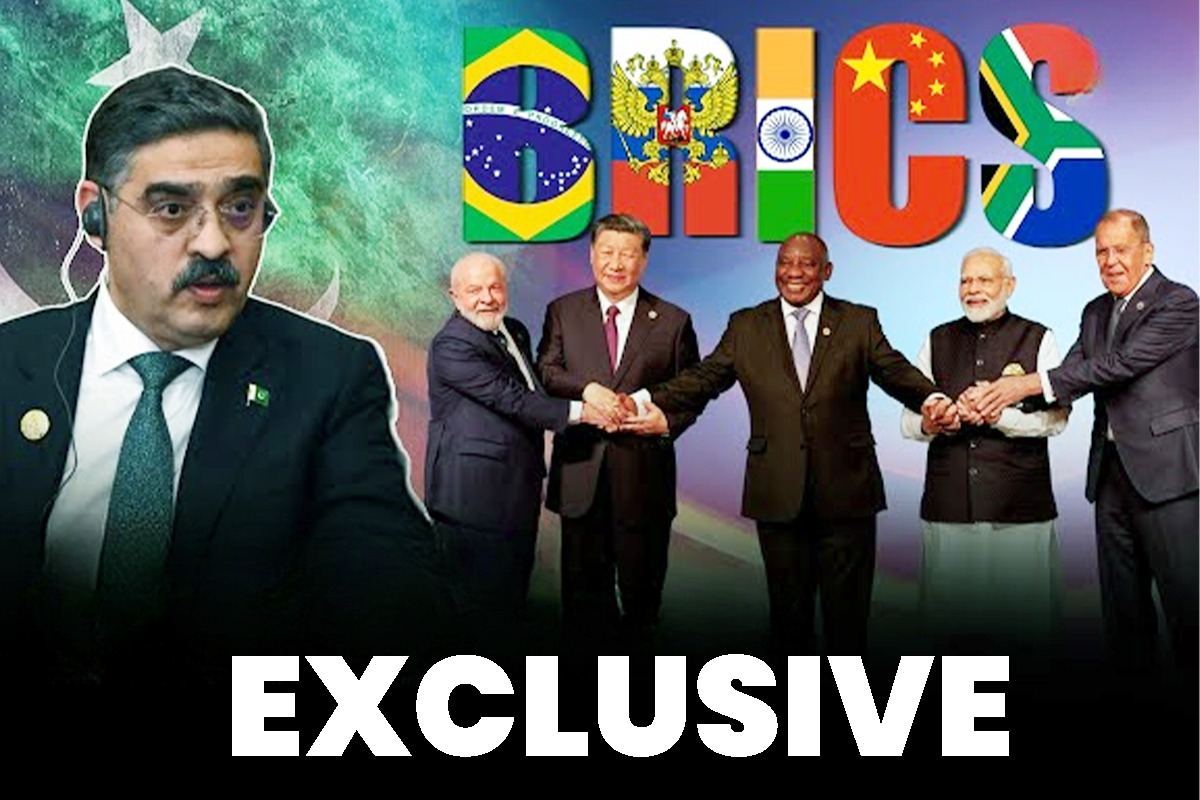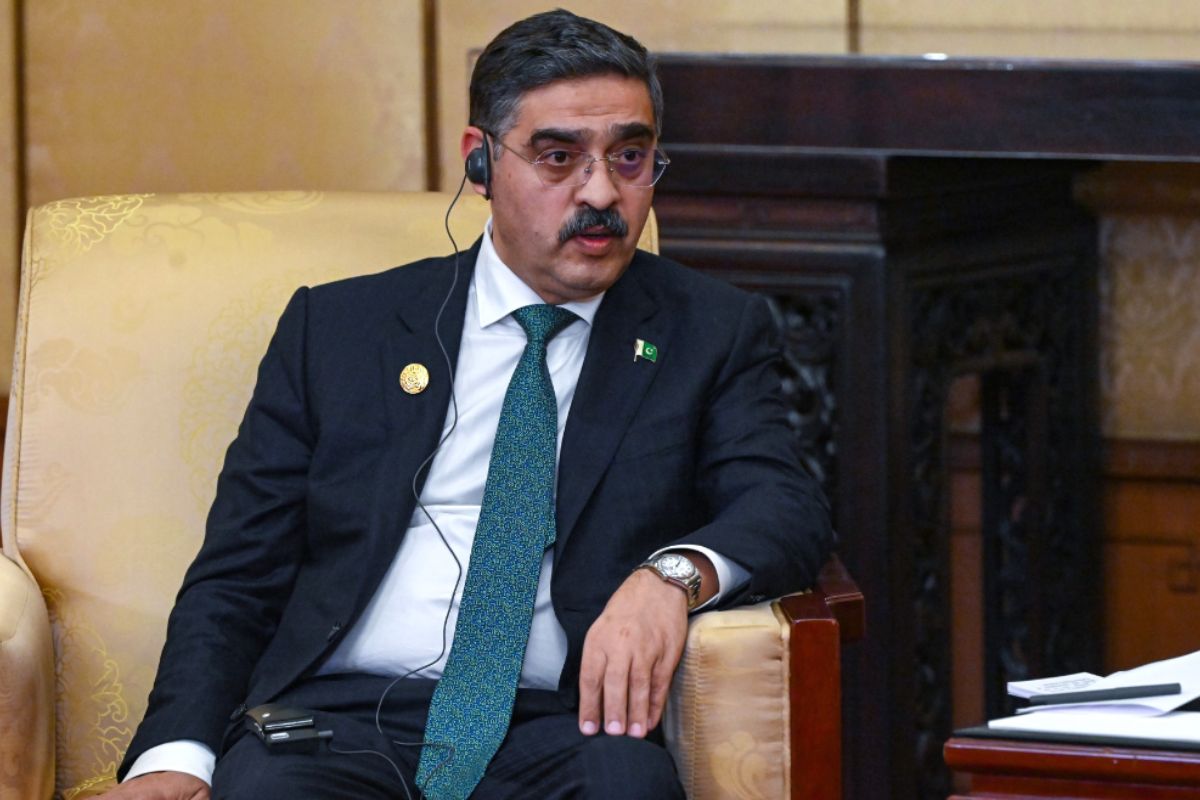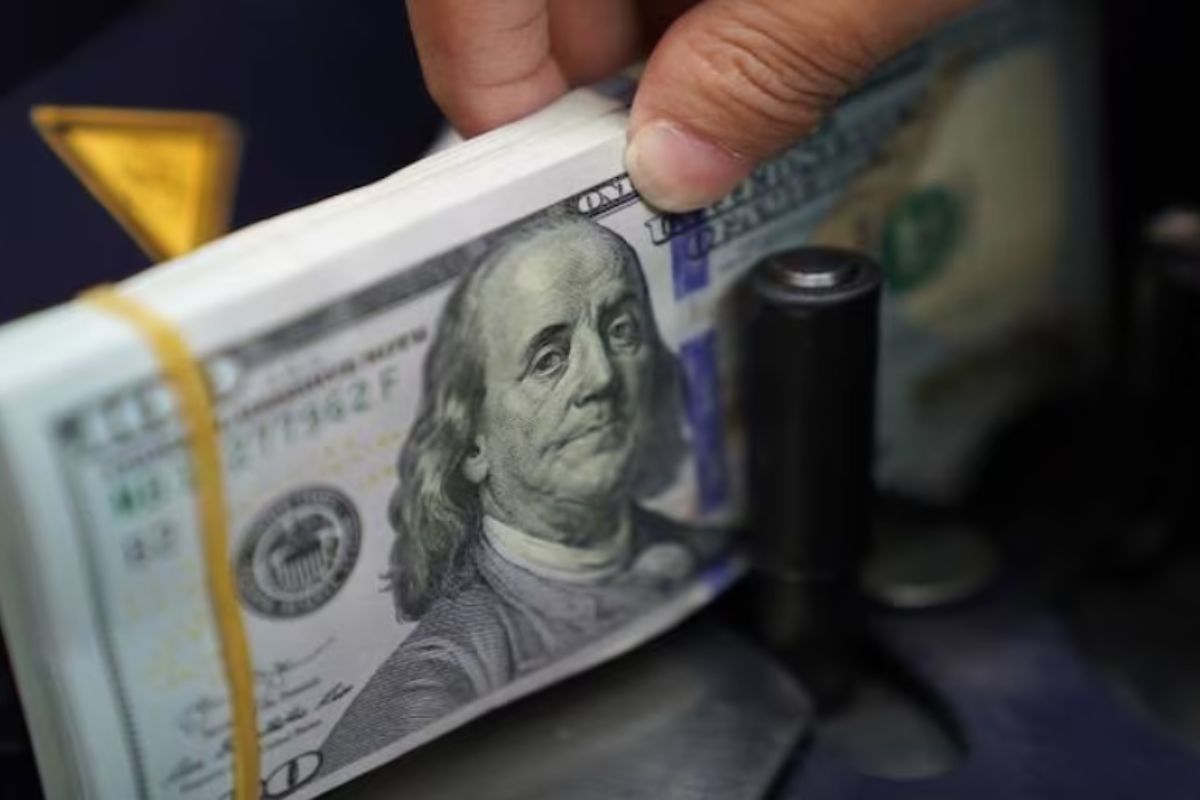


NEW DELHI: The BRICS leaders have decided to extend invitations to five additional countries for membership in their alliance. South African President Cyril Ramaphosa, the host of the three-day summit in Johannesburg in August 2023, announced that Egypt, Ethiopia, Iran, Saudi Arabia, and the United Arab Emirates (UAE) have received invitations to join the BRICS. The new members are expected to officially join the alliance on January 1, 2024.
During an exclusive interview with The New Indian, Anoush Ehteshami, Iranian economic expert and Professor of International Relations at the School of Government and International Affairs, Durham University, highlighted the geopolitical impact of BRICS expansion. He discussed the potential effects of Pakistan joining BRICS, Argentina’s withdrawal, the significance of de-dollarisation, and the prospect of BRICS challenging the economic dominance currently held by the G7.

In November, Pakistan confirmed that it has applied for membership in the BRICS grouping. “Yes, I can confirm that Pakistan has made a formal request to join BRICS, which we believe is an important grouping of developing countries,” Pakistan’s Foreign Office spokesperson Mumtaz Zahra Baloch said during her weekly press briefing.
“We believe that by joining BRICS, Pakistan can play an important role in furthering international cooperation and revitalising inclusive multilateralism. We also hope that BRICS will move forward on Pakistan’s request in line with its commitment to inclusive multilateralism,” she added.
Speaking of whether Pakistan will get the BRICS membership and what it means for New Delhi, Ehteshami stated that the Islamic state is a “handful of hot potatoes” for both China and India. The close ties between China and Pakistan, exemplified by the China-Pakistan Economic Corridor, raise concerns for New Delhi, especially regarding geopolitical and security implications.
Discussing why Pakistan should be denied a BRICS membership, the professor opined, “China being a nuclear weapon state, India being a nuclear weapon state, and Pakistan being a nuclear weapon state, raises questions about the kind of BRICS we are creating. Is this now increasingly a pseudo-military organisation or is it still an economic organisation? Compared to the five nations who will join (the BRICS alliance) on January 1, 2024, Pakistan remains a hugely fragile polity and economy.
“Ethiopia is a member of BRICS+ because it is the host of the African Union, is one of Africa’s fastest-growing economies, has close economic ties with China, and it doesn’t pose security or geopolitical challenges to anybody. Pakistan doesn’t fit that bill.
“Pakistan’s economy is weak, its geopolitics is unstable, doesn’t bring added value to the BRICS+. Moreover, given the ethnic-religious tensions within Pakistan, it generates a whole new range of problems for the other members of the BRICS that they don’t have to face.”
Moreover, Ehteshami elucidated, that Pakistan’s significant allies in West Asia are the UAE and Saudi Arabia. If absorbed into BRICS+, it could alter the geopolitical dynamics within the alliance as Pakistan could turn to Saudi Arabia and the UAE for support. This shift may impact their relations with India, given their existing close ties. Therefore, Pakistan’s BRICS aspiration is a “sack full of hot potatoes,” he clarified.

Argentina’s recently elected President, Javier Milei, has decided to retract the country’s planned entry into the expanding BRICS group of nations. In a letter addressed to the leaders of Brazil, Russia, India, China, and South Africa, Milei explained that decisions made by the previous government were being reconsidered.
Originally positioned to join the BRICS club on January 1, Argentina, along with five other nations—Egypt, Iran, Ethiopia, Saudi Arabia, and the UAE—was expected to bolster the group’s influence as a counterbalance to the Western-led global order.
Highlighting the benefits of Argentina pulling out of BRICS, Ehteshami said, “The BRICS have a goal to de-dollarise their trade, and Argentina’s strategy of adopting the US dollar as its primary national currency contradicts this objective. That would create a gaping hole at the heart of the BRICS+, if they’re trying to de-dollarise the trade.
“Secondly, the economic approach of Argentina’s new administration goes against the broader objectives of the BRICS. If Argentina were to join, its large economy and pivotal role in South American politics might lead to uncomfortable demands and changes, especially for countries like China and Russia, which prefer centralised economic organisation. So, I think, it is a blessing for the BRICS.”
However, the professor also emphasised the consequences of Argentina’s decision, stating, “It prompts the question: If Argentina opts not to join and the remaining five proceed, the American continental presence within BRICS diminishes. This would transform BRICS into more of a Eurasian entity, with Brazil and South Africa being its sole non-Eurasian members.
“Such a shift may not align with the initial intent of the founders, who aimed for a more inclusive international organisation. Notably, when membership invitations were extended, 40 countries expressed interest in joining BRICS. Looking at the Americas, Brazil and Mexico or Brazil and Venezuela might have been considered ideal candidates.
“Venezuela is more aligned with BRICS geopolitically compared to what Argentina might have been. The only reason for not inviting Venezuela to join is rooted in Mexico’s closely entwined relations with the US, which it cannot unravel. Managing Venezuela poses more challenges for BRICS than Argentina would have before the recent election, primarily due to Brazil’s issues with Venezuela.”
The BRICS nations have been engaged in de-dollarisation initiatives, which involve: Encouraging the use of their national currencies in bilateral and multilateral trade, exploring the potential of digital currencies and other financial instruments to bypass the US dollar, establishing the New Development Bank (NDB) in 2014, planning the launch of a common payment framework that can be integrated with a BRICS digital currency, working to create an “international reserve currency.” In fact, advocates of de-dollarisation in BRICS believe that it will mitigate systemic risk in the global financial system.
During his speech at the 15th BRICS summit in Johannesburg on August 24, 2023, Iranian President Ebrahim Raisi emphasised his nation’s steadfast dedication to the ongoing process of de-dollarisation and the creation of a more equitable global order.
Deliberating on the significance of moving away from the US dollar in international transactions, Ehteshami explained, “De-dollarisation allows the country to conduct trade with partners like Russia and China in their respective currencies, reducing dependence on the US dollar.
“However, the challenge lies in the limited convertibility of these currencies. While Iran can accumulate Rubles and Yuan, it cannot exchange them for other currencies, restricting its trading partners primarily to China and Russia. This limitation may result in Iran having to purchase more goods from these countries, influencing the terms of trade dictated by China and Russia due to their larger economies.”
According to him, despite the theoretical appeal of de-dollarisation, Iran faces obstacles as it seeks a basket of currencies within the BRICS, especially considering that other Gulf countries like the UAE and Saudi Arabia still benchmark their currencies with the dollar. The convertibility of currencies remains a crucial factor, and as long as Iran is under sanctions, its ability to transcend these limitations is constrained.

Although the recent additions to the BRICS group currently have a relatively small GDP contribution, it is essential to recognise their considerable growth potential. Several of the new members are expected to experience significant economic expansion in the future.
Presently, existing BRICS members already demonstrate higher real GDP growth rates than their G7 counterparts. According to Goldman Sachs, the average GDP growth for current BRICS members is projected to range from 189 per cent to 205 per cent until 2050, in contrast to the G7’s average growth of 50 per cent.
Discussing whether BRICS is a potential challenger to the economic hegemony traditionally held by the G7 nations, and the role Iran could play in such a scenario, he revealed, “Iran would be very keen to lead the world towards multipolarity. It’s been the mantra for over 40 years. When Abdullah Khomeini first came to power, his foreign policy badge was neither East nor West. What did that say – Multipolarity 101, which has been championed by countries like China, India, Russia, South Africa, and Brazil. They do so because they see tremendous movement in the Global South.
“Therefore, the emergence of BRICS, despite its flaws and vulnerabilities, symbolically offers an alternative to the dominance of the G7. It was very clear when the UN General Secretary Antonio Guterres, at the BRICS Summit 2023, highlighted that the world is moving on from the G7. That is a politically significant statement coming from the head of the UN saying that the World Bank, the IMF, the Security Council, and the structure of the UN need to evolve and respond to this emerging global order.
“However, there is little cohesion within BRICS compared to the G7. Despite Iran’s alignment with the aspirations of new global powers, its ability to unilaterally influence or advance the BRICS+ programme is limited. The context of various international organisations, including the G20, further complicates Iran’s potential impact, as some key players, like Saudi Arabia and Egypt, may shape the agenda and dynamics within these forums.”